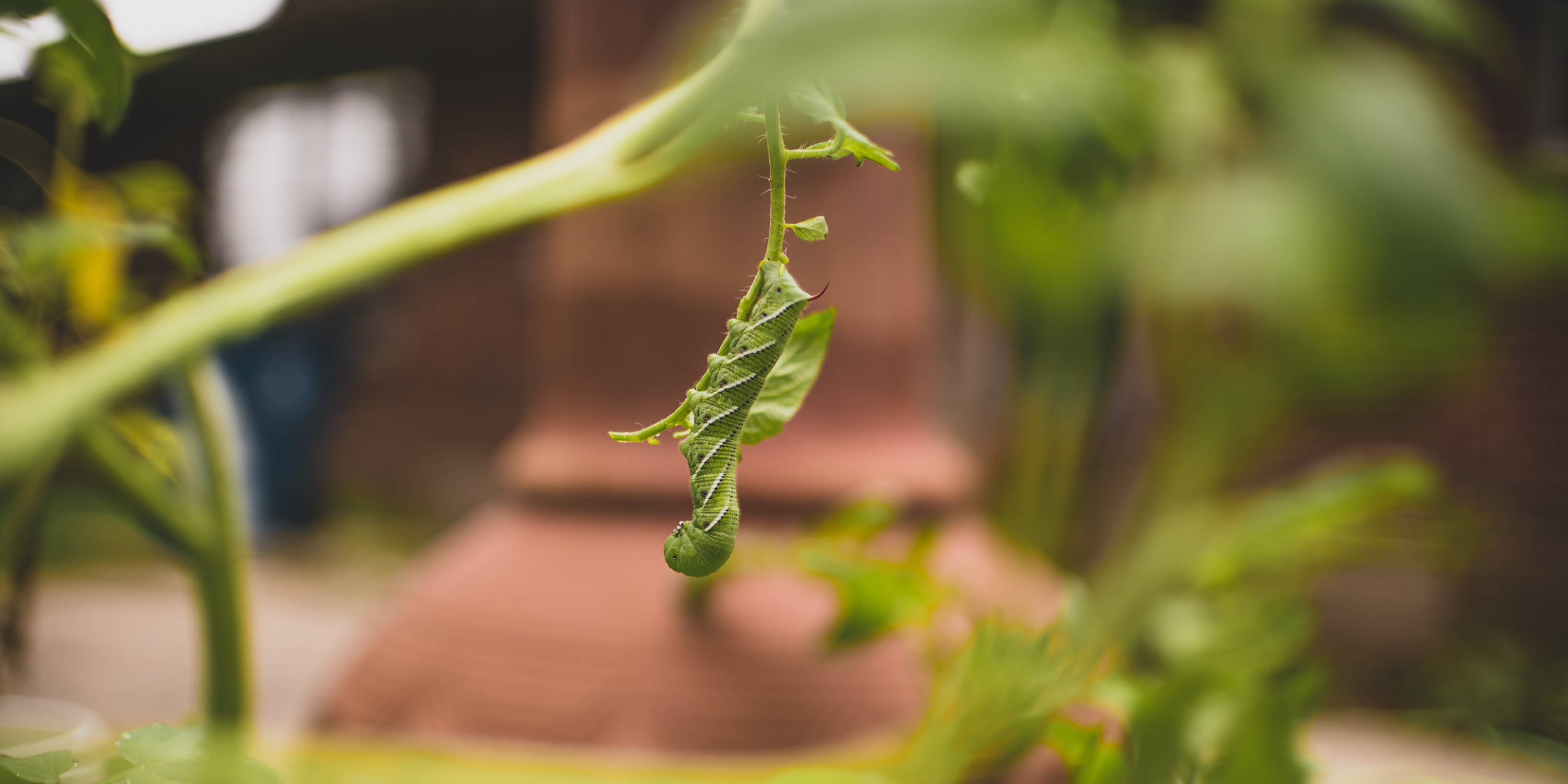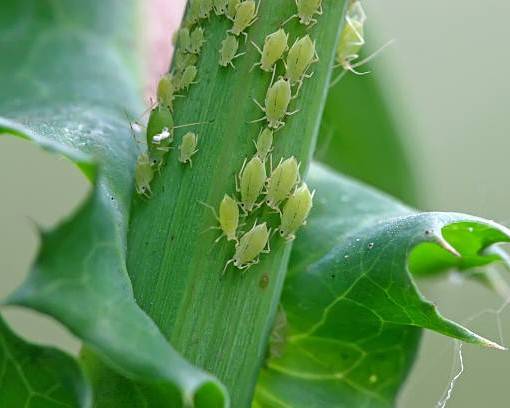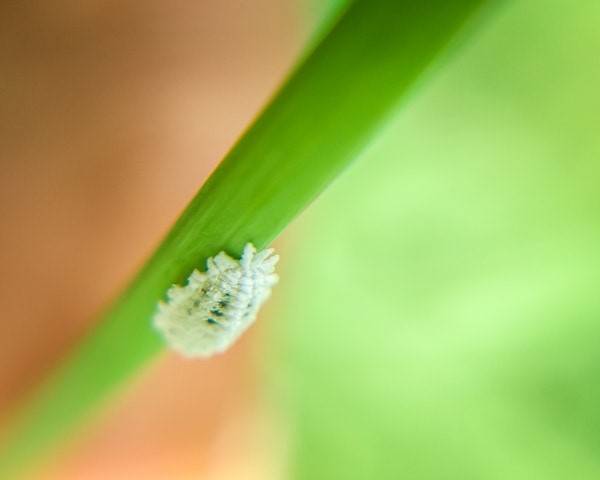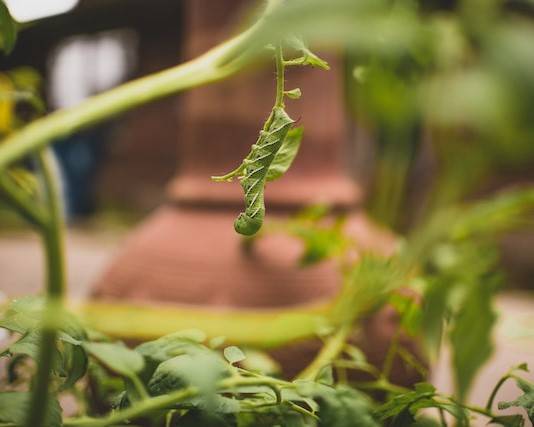Common Pest and How To Deal With Them
Share

Your Complete Guide to Organic Garden Protection
Discover natural, family-safe solutions to protect your garden from the most troublesome pests without harmful chemicals.
Every gardener knows the heartbreak of discovering their thriving plants under attack from unwanted visitors. Whether you're growing vegetables for your family table or nurturing beautiful flowers, pest management is a crucial skill that can make or break your gardening success. The good news? You don't need harsh chemicals to protect your plants. With the right knowledge and organic approaches, you can maintain a healthy, pest-resistant garden that's safe for your family, pets, and beneficial insects.
Why Choose Organic Pest Control?
Before diving into specific pests and solutions, it's important to understand why organic pest control methods are not only safer but often more effective than synthetic alternatives. Chemical pesticides can harm beneficial insects like bees and ladybugs that actually help your garden thrive. They can also create resistant pest populations over time, making future infestations harder to control.
Organic methods work with nature's balance rather than against it. When you build healthy soil with beneficial microbes and nutrients, your plants become naturally more resistant to pest damage. This is where products like worm castings become invaluable - they don't just feed your plants, they create an ecosystem that supports plant health from the ground up.
Pro Tip: Prevention is Key
The most effective pest management starts before pests arrive. Building healthy soil with diverse beneficial microbes creates an environment where plants can naturally resist pest damage. Learn more in our organic soil amendments guide.
The Most Common Garden Pests and Their Organic Solutions

Aphids: The Tiny Green Menace
Identification:
These soft-bodied, pear-shaped insects cluster on new growth, stems, and the undersides of leaves. They come in various colors including green, black, red, and white. You'll often notice sticky honeydew residue on plants or ants farming them.
Damage:
Aphids suck plant juices, causing yellowing, wilting, and stunted growth. They can also transmit plant viruses and their honeydew attracts sooty mold.
Organic Solutions:
- Strong water spray: Use your garden hose to blast aphids off plants early in the morning
- Beneficial insects: Encourage ladybugs, lacewings, and parasitic wasps by planting diverse flowers
- Companion planting: Plant aromatic herbs like basil, mint, and chives nearby to deter aphids
- Healthy soil: Plants grown in nutrient-rich soil with beneficial microbes are more resistant to aphid damage

Spider Mites: The Nearly Invisible Destroyers
Identification:
These microscopic pests are barely visible to the naked eye but leave telltale signs: tiny yellow or white spots on leaves, fine webbing, and leaves that appear dusty or bronze.
Damage:
Spider mites pierce plant cells and feed on chlorophyll, causing stippling, yellowing, and eventual leaf drop. They thrive in hot, dry conditions.
Organic Solutions:
- Increase humidity: Spider mites hate moisture - water plants regularly and consider misting
- Beneficial predators: Predatory mites, thrips, and ladybugs all feed on spider mites
- Reflective mulch: Aluminum foil mulch can confuse and deter spider mites
- Strong soil health: Well-fed plants with robust microbial communities resist mite damage better

Thrips: The Rasping Feeders
Identification:
These slender, yellow to brown insects are about 1/16 inch long. Look for silvery or bronze streaks on leaves, black specks of excrement, and tiny holes.
Damage:
Thrips rasp plant tissue and suck out cell contents, creating distinctive silvery scarring. They can also transmit plant viruses.
Organic Solutions:
- Blue sticky traps: Thrips are attracted to blue more than yellow
- Beneficial nematodes: Apply these microscopic predators to soil to target thrip pupae
- Remove debris: Clean up fallen leaves and plant debris where thrips overwinter
- Proper nutrition: Plants with balanced nutrition through organic matter are less susceptible

Caterpillars and Worms: The Leaf Chompers
Identification:
Various species from cabbage worms to tomato hornworms can devastate plants. Look for large holes in leaves, dark green or black droppings, and the caterpillars themselves.
Damage:
These pests can defoliate plants quickly, particularly cruciferous vegetables like broccoli and cabbage.
Organic Solutions:
- Hand picking: Remove visible caterpillars daily in early morning or evening
- Bacillus thuringiensis (Bt): This organic bacterial spray targets caterpillars specifically
- Row covers: Physical barriers prevent moths from laying eggs on plants
- Beneficial birds: Encourage insectivorous birds with birdhouses and water sources
Build Pest-Resistant Soil Today
Strong, healthy plants start with living soil. Our organic products provide the beneficial microbes and nutrients your plants need to naturally resist pest damage.
Shop Worm Castings Shop Plant JuicePrevention: The Best Pest Control Strategy
The most effective pest management starts before pests arrive. Building healthy soil with diverse beneficial microbes creates an environment where plants can naturally resist pest damage. This is where organic soil amendments become crucial to your success.
Building Pest-Resistant Soil
- Add organic matter regularly with worm castings and compost
- Maintain proper pH (6.0-7.0 for most vegetables)
- Ensure good drainage to prevent plant stress
- Support diverse microbial life with beneficial bacteria and fungi
Cultural Prevention Practices
- Practice crop rotation annually
- Use companion planting strategies
- Provide proper plant spacing for air circulation
- Monitor plants weekly for early detection
Integrated Pest Management: Working with Nature
The most successful organic gardeners use Integrated Pest Management (IPM), which combines multiple strategies rather than relying on a single solution. This approach includes:
Biological Control: Encouraging beneficial insects, spiders, and other predators that naturally keep pest populations in check. Creating habitat for these helpers through diverse plantings is key.
Cultural Controls: Modifying growing conditions to make them less favorable for pests while optimizing them for plants and beneficial organisms.
Physical Controls: Using barriers, traps, and hand removal to directly reduce pest numbers without chemicals.
Organic Products: When necessary, using naturally-derived products that target specific pests while preserving beneficial species.
Building Long-Term Garden Health
The secret to successful organic pest management lies in building soil health from the ground up. When your soil teems with beneficial microorganisms, plants develop stronger root systems, better nutrient uptake, and enhanced natural defenses against pests and diseases.
Worm castings provide an excellent foundation for healthy soil because they contain diverse beneficial microbes that help plants access nutrients, resist disease, and withstand stress. Unlike synthetic fertilizers that can actually weaken plant immunity over time, organic soil amendments work with natural processes to create resilient garden ecosystems.
Seasonal Success Strategy
Regular applications of organic matter, proper watering practices, and encouraging beneficial insects create a balanced garden environment where serious pest problems become rare events rather than seasonal crises. Check out our seasonal care guide for year-round tips.
When to Take Action
Not every pest requires immediate intervention. Learning to distinguish between cosmetic damage and serious threats helps you respond appropriately:
Act immediately when:
- Pest populations are increasing rapidly
- Plants show significant stress or damage
- Pests are known disease vectors
Monitor and wait when:
- Damage is minimal and plants are otherwise healthy
- Beneficial predators are present
- Weather conditions favor natural pest decline
The Bottom Line
Effective organic pest management isn't about eliminating every insect from your garden - it's about creating balance. When you focus on building healthy soil, encouraging beneficial organisms, and using targeted organic solutions when necessary, you create a garden ecosystem that naturally keeps pest problems manageable.
Remember that healthy plants grown in living soil with diverse beneficial microbes are your first and best line of defense against pest damage. By investing in soil health and working with natural processes rather than against them, you'll find that serious pest problems become increasingly rare while your garden becomes more productive and beautiful year after year.
Start with the basics: build healthy soil, encourage beneficial insects, and monitor regularly. Your garden - and your family - will thrive with this natural approach to pest management.
Ready to Transform Your Garden?
Build healthier soil that naturally resists pests with our organic soil amendments and expert guidance.
Get Started Kit More Pest Tips